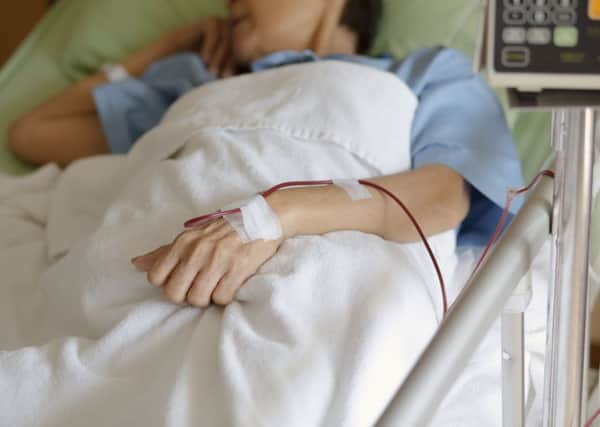Infected blood victims’ medical ‘records destroyed’, inquiry told


The scandal has been labelled the worst treatment disaster in the history of the NHS.
A father fought back tears as he told the Infected Blood Inquiry that his teenage son had died of Aids after being infected through treatment for haemophilia, but said that no hospital medical records exist.
Advertisement
Hide AdAdvertisement
Hide AdA woman who contracted hepatitis C through a blood transfusion said she was left feeling “completely rejected by society” after being “lied to” by the NHS and her missing medical records continue to hamper her treatment.
Thousands of patients were infected with HIV and hepatitis C via contaminated blood products in the 1970s and 1980s, and around 2,400 people died.
Giving evidence at the inquiry in Edinburgh, John McDougall said his son Euan and brother-in-law Terry McStay both died of Aids contracted through blood products used to treat haemophilia.
He said Terry was the first haemophilia sufferer to die of Aids in Scotland and he had warned before he died against using American Factor VIII to treat haemophilia and that “heat treatment was the answer”.
Mr McDougall said medics at Yorkhill Hospital in Glasgow refused to provide heat-treated products on grounds of cost and efficacy, but within six weeks of Terry’s death they began to do so.
He said: “It think it took that death to spur the appropriate health authorities in Scotland and the UK more widely, certainly in Scotland, into action.
“It took a death.”
Euan McDougall was diagnosed with HIV in 1985, aged eight. Mr McDougall became emotional as he told how his son suffered bouts of paralysis and gradually went blind before dying in January 1994.
On attempting to access his son’s medical records, he was told there was no trace of them.
Advertisement
Hide AdAdvertisement
Hide AdHe said: “The hospital records disappeared, and are gone, are destroyed.”
Mr McDougall said he wanted to know why Yorkhill continued using American Factor VIII when elsewhere in Scotland its use had stopped, and he also questioned when heat-treated products had started being produced. “I’ve waited to know these things for 35 years.”
The inquiry also heard from Eileen Dyson, who was given a blood transfusion aged 29 following the birth of her son in 1988 but was not diagnosed with hepatitis C until 1994.
The inquiry, before Sir Brian Langstaff, continues.